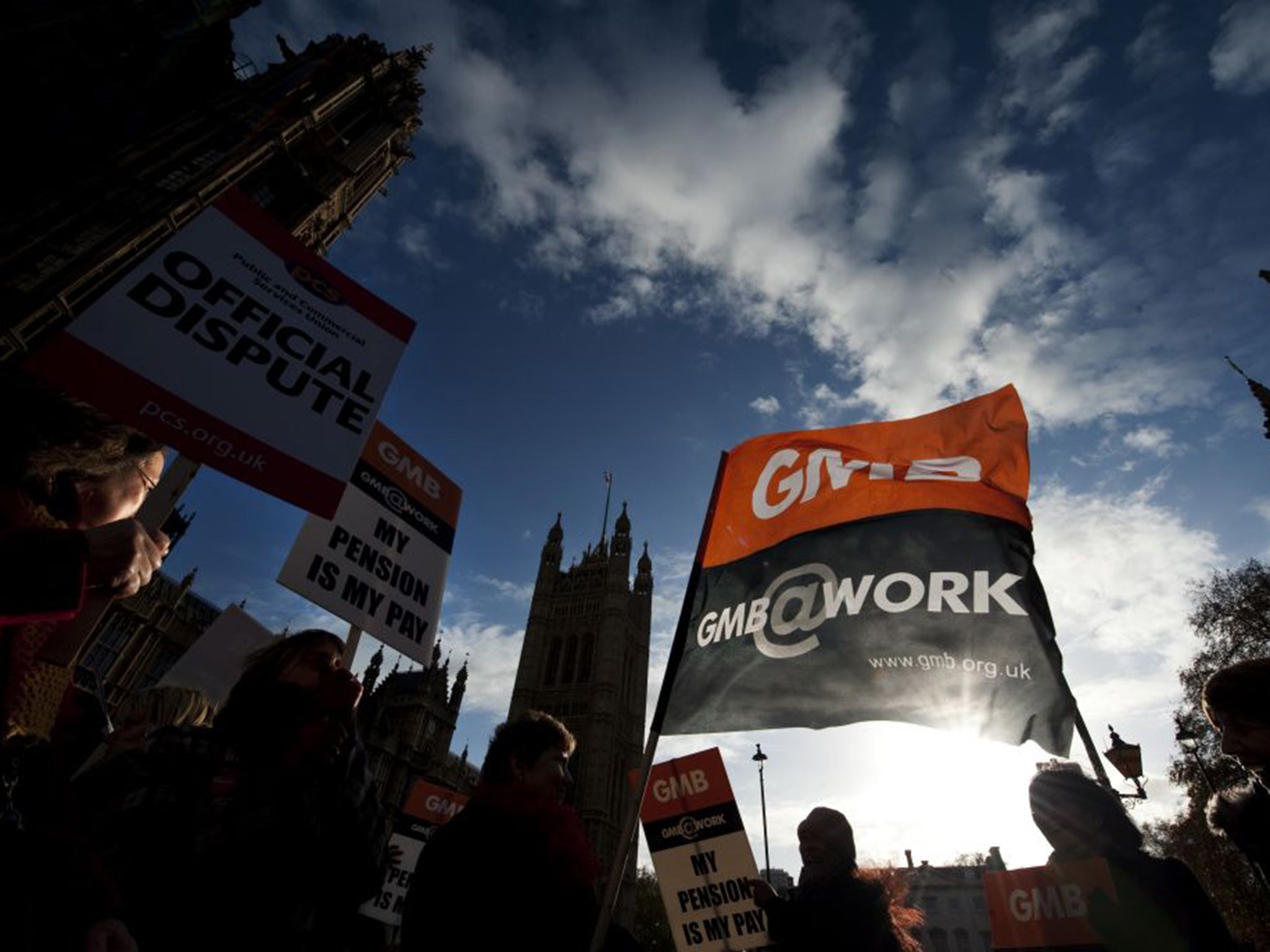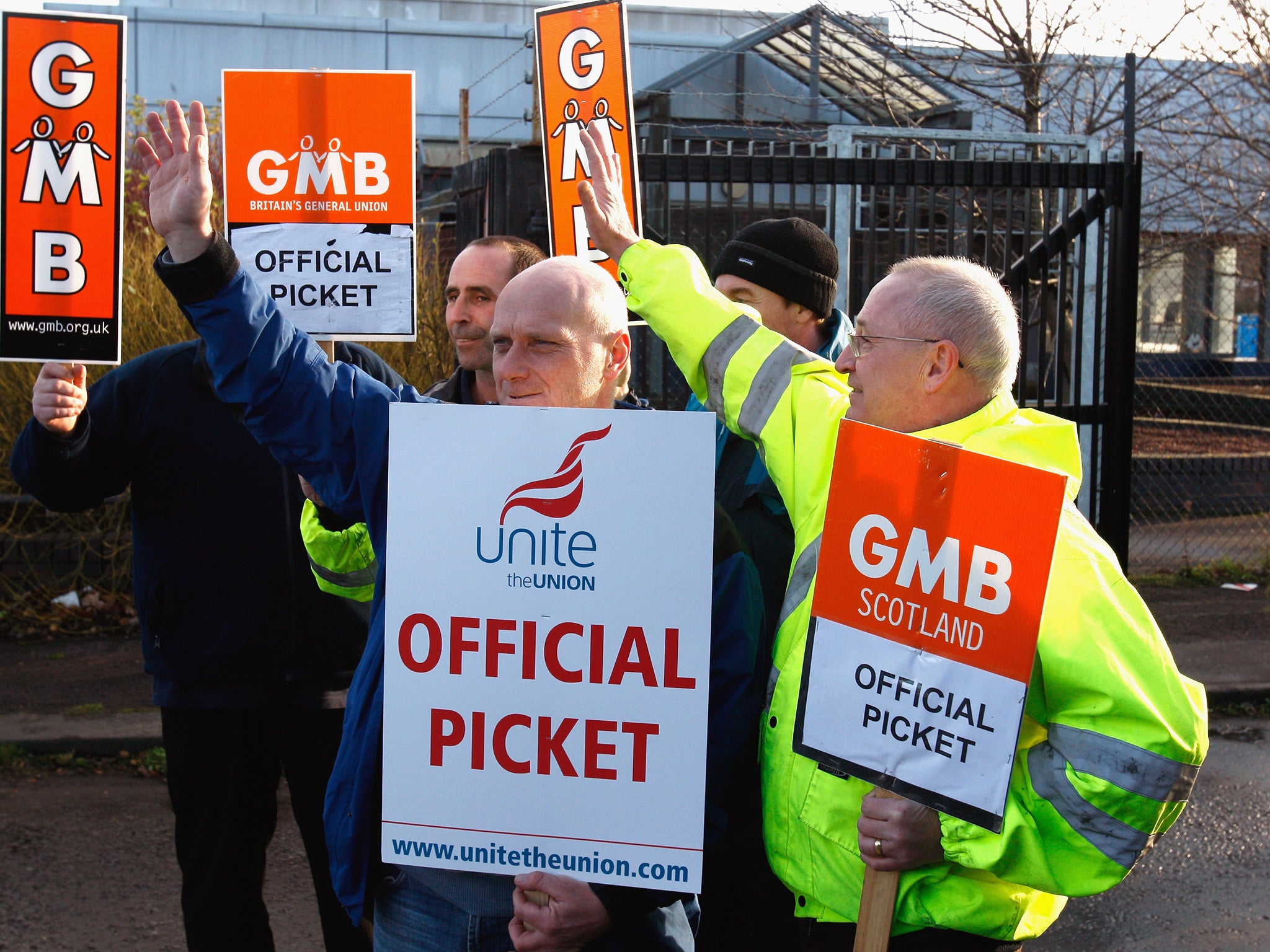Trade Union Bill: All Scottish councils say they will ignore controversial new law
Exclusive: All 32 Scottish councils will refuse to implement the conditions of the bill

Your support helps us to tell the story
From reproductive rights to climate change to Big Tech, The Independent is on the ground when the story is developing. Whether it's investigating the financials of Elon Musk's pro-Trump PAC or producing our latest documentary, 'The A Word', which shines a light on the American women fighting for reproductive rights, we know how important it is to parse out the facts from the messaging.
At such a critical moment in US history, we need reporters on the ground. Your donation allows us to keep sending journalists to speak to both sides of the story.
The Independent is trusted by Americans across the entire political spectrum. And unlike many other quality news outlets, we choose not to lock Americans out of our reporting and analysis with paywalls. We believe quality journalism should be available to everyone, paid for by those who can afford it.
Your support makes all the difference.Every local authority in Scotland will ignore the terms of the Government’s contentious Trade Union Bill, making the legislation unworkable north of the border.
The Independent on Sunday can reveal that all 32 Scottish councils will refuse to implement the conditions of the bill when it becomes law. Those conditions include removing the process of check-offs whereby union subscriptions are deducted from the salaries of workers who are members of a trade union.
Unions have complained that this is a cynical ploy to reduce their funding and will waste their resources in renewing subscriptions. They are also infuriated that the bill constrains the amount of paid time off that public sector union representatives can take for those responsibilities, a move the authorities will also oppose.
Labour, which has nearly one-third of Scotland’s 1,223 councillors, is worried that other provisions in the bill would cut off much of the party’s crucial union funding. Under the current system union members have to opt out of paying an affiliation fee to Labour; the change would require them to opt in, making payment less likely.

Union leaders believe the move could help turn opinion against the bill across the country, in a repeat of Margaret Thatcher’s Poll Tax debacle. Opposition to the hated levy started in Scotland, where trials were run in 1989, before it was dropped and replaced by the Council Tax four years later.
Councillor Billy Hendry is the human resources spokesman for the Convention of Scottish Local Authorities, which represents 28 of the 32 Scottish councils. He said: “We already have very effective and constructive arrangements which allow us as employers to negotiate pay and conditions with the trade unions, collaborate where we can on issues of joint interest and that allow us to resolve local or national disputes.
“This works for the people of Scotland and works for us when delivering vital public services. This bill, if enacted, would endanger all of this and may even lead to more industrial unrest. No one benefits from this.”
Renfrewshire Council leader Mark MacMillan said: “We recently agreed to oppose legislation which is a cynical political attack by the Tory Government on the ability of trade unions to represent working people effectively. We will continue to support arrangements that enable trade union representatives with the time and resources to represent their members.”
In a letter to the Business Secretary, Sajid Javid, Mr MacMillan added: “I believe that the bill undermines ordinary working people and their right to a voice at work. I would urge you to reconsider the bill and reflect on the negative consequences of seeking to implement the provisions of the bill.”
Edward McAvoy, the leader of South Lanarkshire Council, said: “I don’t think the bill will happen, and I hope it doesn’t, in Scotland.”
Unions have demanded that the Scottish Government refuse to implement the bill, which sets a far higher threshold for validating ballots on industrial action, so that strikes would become extremely rare. Unions would have to secure the support for a strike of more than 50 per cent of those entitled to vote, rather than a straight majority of those who actually vote.
There are suggestions that the Scottish Government should tell Police Scotland, which has devolved powers, that violations of the new law would be a low priority, meaning breaches would be largely ignored. Strikes that would be illegal in England or Wales could then go ahead in Scotland.
Gary Smith, the GMB union’s acting secretary in Scotland, said: “This is an assault on civil liberties. The Tories are trying to smash one of the last bastions of opposition to inequality and social injustice. The Scottish Government needs to say clearly that they will not apply the bill in Scotland. This is a new generation’s poll tax moment.”
A Scottish Government spokesman said: “We have set out our clear and strong opposition to the proposals in the Trade Union Bill, which we regard as a totally unjustified attack on workers’ rights. We will continue to oppose these plans in the strongest possible way, and we urge the UK Government to look again at these deeply flawed proposals.”
But a senior Conservative backbencher warned that the SNP, which is in government north of the border, was using the issue in its push for a second independence referendum. The source said: “This all plays into the wider dynamic of the way the SNP’s continuous independence campaign is going. The more the SNP can create irritation and division, the more it plays into their hands.”
A business department spokeswoman said: “Once secondary legislation is made, we expect local authorities and public bodies to comply with the law.”
Join our commenting forum
Join thought-provoking conversations, follow other Independent readers and see their replies
Comments